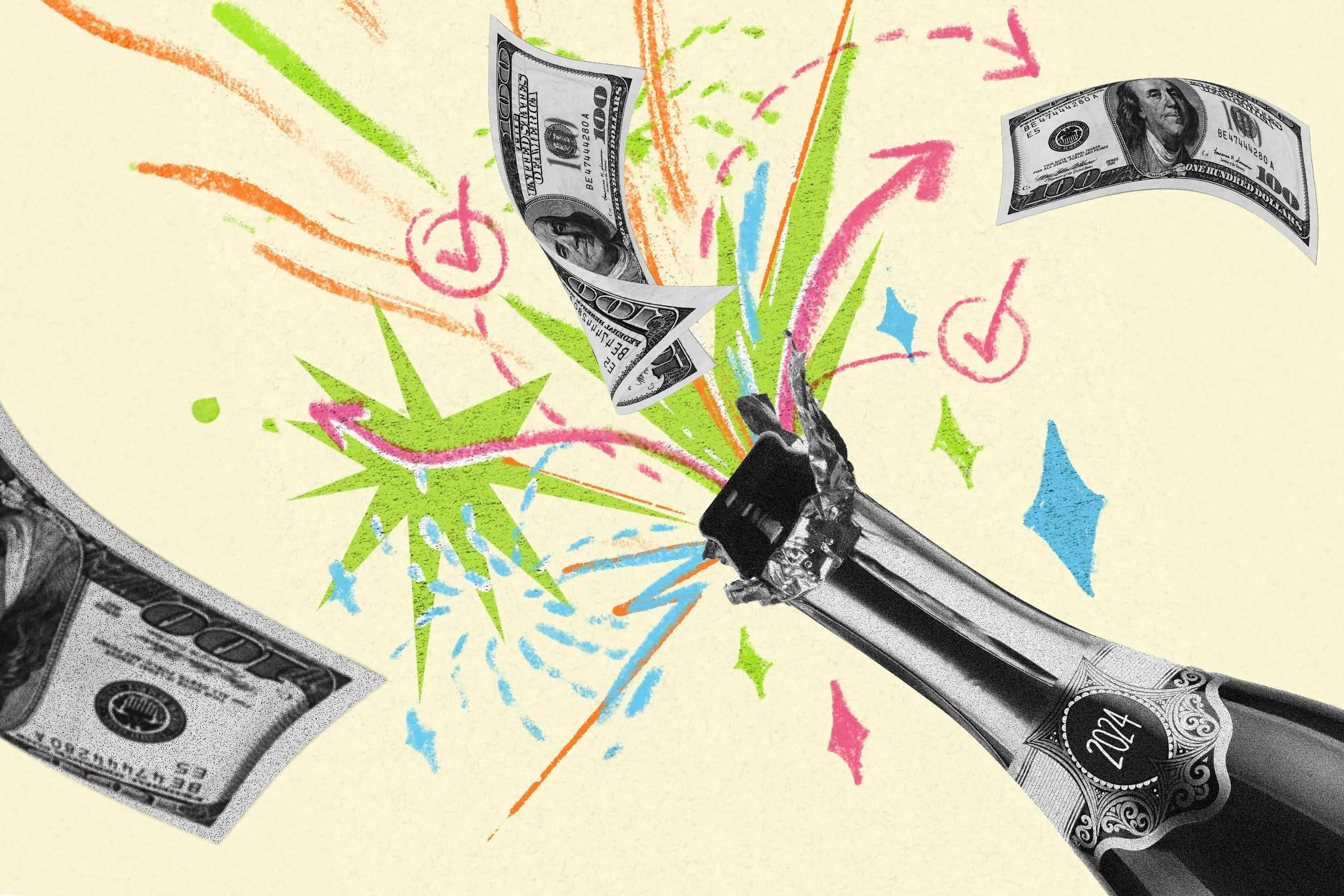- Financial Maverick
- Posts
- How Rich People Think, Hottest Markets, and Buffett's Portfolio
How Rich People Think, Hottest Markets, and Buffett's Portfolio
This Money Checklist Will Help You Crush 2024
Good morning. It's Friday, Jan. 5, and we're covering how rich people think about money, financial scarcity, the hottest housing markets, and much more.
First time reading? Sign up here.
Stock Market Update
Market Performance: January 5, 2024.
The Nasdaq Composite closed lower on Thursday for a fifth consecutive session — its longest losing streak since October 2022.
The tech-heavy Nasdaq Composite dipped 0.56% to end at 14,510.30. Since the Dec. 27 close, the index has lost nearly 4%. The S&P 500 slid 0.34%, marking a fourth day of declines, finishing at 4,688.68. The Dow Jones Industrial Average was the outlier, eking out a 10.15-point gain, or 0.03%, to close at 37,440.34.
Mega-cap tech stocks such as Apple are underperforming to start the year, as overstretched valuations and uncertainty around when the Federal Reserve will begin to cut rates have investors worried that markets have gotten overly optimistic.
Financial Maverick Insights
How Rich People Think About Money (Psychology of Money)
Money, in many ways, shapes our decisions, our lifestyles, and our relationships. Yet, not all think about money in the same way. How the wealthy approach money can provide insights into building sustainable financial success. Let’s explore the psychology of money among the rich.
What do rich people think about money? The rich think of money as a tool, resource, and asset for multiplication and growth through good decisions.
And doing so can actually help you get to a more financially stable and happy place.
From valuing long-term gains over short-term rewards to understanding the importance of time as a precious asset, the psychology of wealth plays a crucial role in shaping our financial decisions. But how do successful and wealthy individuals think about money?
What drives their approach to risk management, mindset of abundance, and commitment to lifelong learning?
Take the money now or later? Financial scarcity doesn't lead to poor decision making
When people feel that their resources are scarce—that they don’t have enough money or time to meet their needs—they often make decisions that favor short-term gains over long-term benefits. Because of that, researchers have argued that scarcity pushes people to make myopic, impulsive decisions.
But a study published by the American Psychological Association provides support for a different, less widely held view: People experiencing scarcity make reasonable decisions based on their circumstances, and only prioritize short-term benefits over long-term gains when scarcity threatens their more immediate needs.
Sharma and co-authors Stephanie Tully, PhD, of the University of Southern California, and Xiang Wang, PhD, of Lingnan University in Hong Kong, wanted to distinguish between two competing ideas:
That people’s preference for shorter-term gains reflects impatience and impulsivity, or that it reflects more intentional, deliberate decision-making.
To do so, they examined how people’s decisions change depending on the timeline of the needs that they feel they don’t have enough money for.
Real Estate News
Personal Finance Tips
Alternative Investing
Do you actively use cash apps on your phone? |
Reach Over 100,000 Financial Mavericks
Advertise with Financial Maverick to get your brand in front of the Financial Gurus in the world. The Mavericks are high-income and highly knowledge people who are always looking for an interesting product or tool.
Calling all Financial Mavericks! To help out a family and friend in need by sharing this newsletter. Tell you what if you ever wanted to be a Hero, Financial Guru, or a Nice Person this is your time!
DISCLAIMER: None of this is financial advice. This newsletter is strictly educational and is not investment advice or a solicitation to buy or sell any assets or to make any financial decisions. Please be careful and do your own research.







